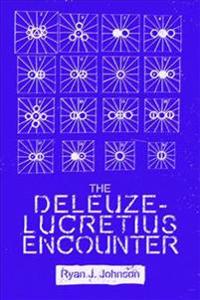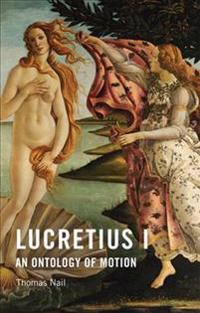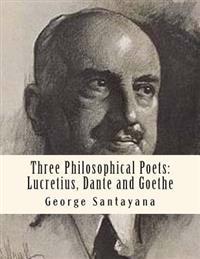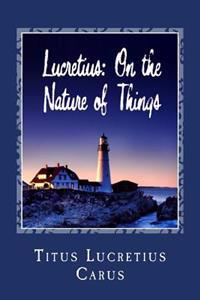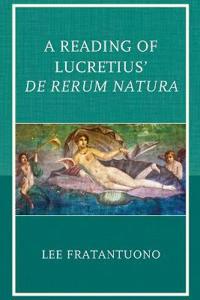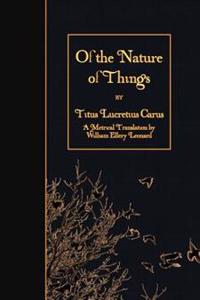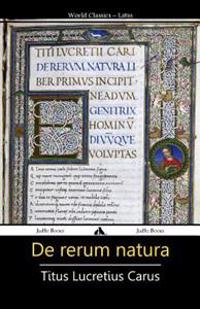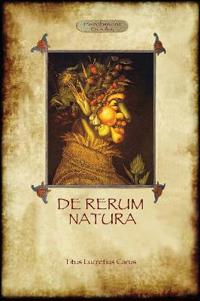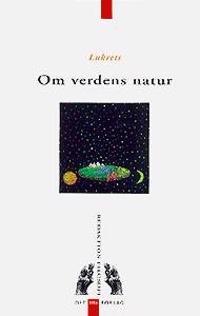On the Nature of Things (Dodo Press) (Pocket)
avCarus, Titus Lucretius
ISBN: 9781406564808Titus Lucretius Carus (99 BC-55 BC) was a Roman poet and philosopher. His only known work is the epic philosophical poem De Rerum Natura, On the Nature of Things. Very little is known about Lucretius' life. One source of information is found in a letter Cicero wrote to his brother Quintus in Februar[...]
The Deleuze-Lucretius Encounter (häftad)
ISBN: 9781474432306 - UTGIVEN: 2018-03Explores how Deleuze's thought was shaped by Lucretian atomism - a formative but often-ignored influence from ancient philosophy More than any other 20th-century philosopher, Deleuze considers himself an apprentice to the history of philosophy. But scholarship has ignored one of the more formative i[...]
Lucretius I
ISBN: 9781474434676 - UTGIVEN: 2018-03The most original and shocking interpretation of Lucretius in the last 40 yearsThomas Nail argues convincingly and systematically that Lucretius was not an atomist, but a thinker of kinetic flux. In doing so, he completely overthrows the interpretive foundations of modern scientific materialism, who[...]
Three Philosophical Poets: Lucretius, Dante and Goethe (Häftad)
ISBN: 9781492707349 - UTGIVEN: 2013-09de La Nature Des Choses: Lucrece (Häftad)
avMme Lucretius Titus Carus, M. Georges Ballin
ISBN: 9781495363658 - UTGIVEN: 2014-01Lucretius: On the Nature of Things (Häftad)
avWilliam Ellery Leonard
ISBN: 9781495972621 - UTGIVEN: 2014-02A Reading of Lucretius' De Rerum Natura
ISBN: 9781498511568 - UTGIVEN: 2017-03Lucretius' philosophical epic De Rerum Natura (On the Nature of Things) is a lengthy didactic and narrative celebration of the universe and, in particular, the world of nature and creation in which humanity finds its abode. This earliest surviving full scale epic poem from ancient Rome was of immen[...]
de Rerum Natura - On the Nature of Things (Aziloth Books) (Häftad)
avLucretius Carus Titus
ISBN: 9781909735057 - UTGIVEN: 2013-04Om verdens natur (Häftad)
avTitus Lucretius Carus, Lukrets
ISBN: 9788790030650 - UTGIVEN: 1998-01Om verdens natur er oversat og gendigtet på heksametre fra latin efter De rerum natura af ægteparret Ellen A. og Erik H. Madsen - i øvrigt som deres sidste store oversætter- og udgiverindsats til glæde for danske læsere. "En bog om alt" kunne man kalde dette gevaldige læredigt på 7414 vers, [...]


